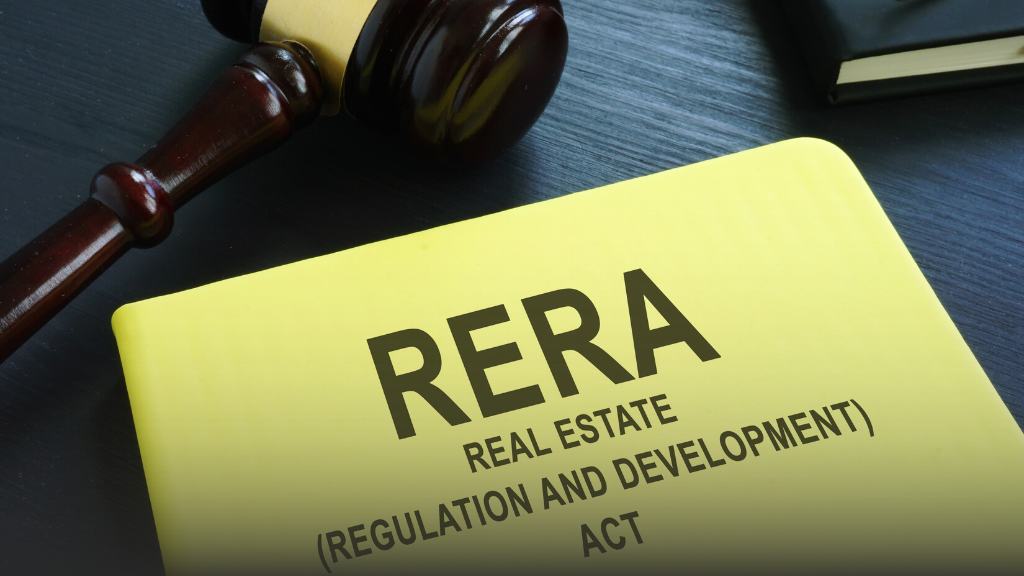Property Geek
We provide the actual and accurate information with unbiased user driven reviews to our viewers, to help them see the best and find the best!
View posts
The Real Estate or Regulation and Development Act, 2016 – RERA was adopted by the parliament of India. This act strives to support investment in the real estate market while also defending homebuyers’ rights. On March 10, 2016, the Rajya Parliament adopted the RERA bill; on March 15, the Lok Sabha did the same. Thereafter, the legislation came into force on May 1, 2016. Even though 59 of the 92 sections were notified on May 1, 2016, the remaining clauses began to apply on that day.
State governments are required by the Act to proclaim their own regulations in accordance with the model rules provided by the central Act.
Let’s understand ‘what is RERA?’, and what comes under it. But, first RERA’s full form.
The Real Estate (Regulation and Development) Act, of 2016, established the Real Estate Regulatory Authority (RERA) to regulate the real estate industry and resolve problems that prospective homebuyers may encounter. Now, that we have an idea of what is RERA, let’s also know its objectives of it. The following goals are part of it:
Home buyers claim that developers have long been accused of improperly enriching themselves in real estate dealings. A more equal and fair transaction between the seller and the buyer of properties, particularly in the primary market, is the goal of RERA and the government’s model code in India. RERA should increase transparency and accountability while accelerating the real estate purchasing process if states abide by the regulations and the primary law’s objectives.
The RERA shall act as India’s first real estate industry regulator. The Real Estate Act mandates that each state and union territory create its own regulatory body and define the rules that will govern how that organization functions.
The real estate market in our country needed a law like RERA to regain its reputation. Since that it is one of the primary sources of wealth in our country, some open government control is necessary to keep developers in line.
RERA will level the playing field for businesses and consumers while lowering the risks now present. RERA is essential since it will affect more than 76,000 businesses nationwide.
In accordance with this regulation, real estate projects and brokers must now register, among other conditions.
A buyer will have the right to receive all documents pertaining to a real estate project as well as all information thereon. RERA establishes a state entity to supervise both commercial and residential real estate transactions.
Homebuyers can live with ease knowing that RERA will ensure the project is completed on time. RERA will promote transparency by ensuring more accuracy between developers and buyers.
The organized real estate market will also be impacted by RERA. For instance, a retail investor who makes an investment in a property that is still under construction with an assured return would now have extensive information on the financial standing of the developer providing the certain return.
This Act gives the regulators the authority to punish and imprison defaulters for up to three years.
Many significant RERA compliances include:
The best thing about this Act is that it unifies the legal framework for buying flats, apartments, etc., and aims to harmonize the procedure throughout the nation. The Act’s main highlights are listed below:
Three methods are frequently used to determine a property’s area: carpet area, built-up area, and super built-up area. As a result, there may be a big gap between what you spend and what you actually get when buying a house. It is now required for developers of all active projects to declare the size of their flats, based on carpet area, according to Gautam Chatterjee, chairman of Maharashtra RERA (i.e., the area within four walls). This covers functional areas like the kitchen and restrooms.
Up until now, there was a lack of clarity. “The net useable floor space of an apartment, excluding areas covered by exterior walls, spaces under services shafts, exclusive balcony or verandah area, and exclusive open terrace area, but including the area covered by the internal partition walls of the unit,” is how the RERA defines carpet area.
In order for a customer to understand what he is buying, a builder is required by RERA to disclose the specific carpet area. Nevertheless, the law does not mandate that developers base a flat’s sales on the carpet area.
The implementation of the Real Estate Regulatory Act (RERA) in India has brought significant changes to the real estate industry. RERA’s focus on transparency, accountability, and buyer protection has restored faith in the sector and provided a more level playing field for businesses and consumers alike. With mandatory registration, increased disclosure requirements, and the establishment of regulatory authorities, RERA has set a new standard for professionalism and integrity in the real estate market. As a result, homebuyers can now make informed decisions, developers are held to higher standards, and the overall dynamics of the industry have improved. RERA has paved the way for a more transparent, reliable, and trustworthy real estate sector in India.
Although the real estate industry has expanded recently, it has mostly been unregulated in terms of consumer protection.
Despite the existence of consumer protection legislation, the remedies provided by them are solely curative and not preventative. A lack of professionalism and uniformity has hampered the sector’s overall development.
The builder’s estimations form the basis of the registration’s validity. So, it is their responsibility to follow the deadlines; otherwise, they run the danger of losing money or being forced to pay fines.
RERA stands for Real Estate Regulatory Authority. RERA is a regulatory body that oversees and governs the real estate sector. It aims to promote transparency, accountability, and efficiency in the real estate industry, protect the interests of homebuyers, and ensure fair practices among developers and real estate agents.